We are mindful of the need for the devices to be used thoughtfully rather than gratuitously. However, there are some subject areas where it remains essential for students to continue to use pen and paper, as scientific research continues to affirm that writing by hand is an essential way our brains to transfer and cement new information.
——Siobhain Allum,
Primary School Principal
This week, the Primary School held its annual Unity Week and, as part of the special school-wide Anti-Bullying Month, teachers in every class organized various activities. William Stanton, Year 2 English teacher, led students in reading an anti-bullying book and asked the students to express their feelings through making a post online in a digital portfolio.
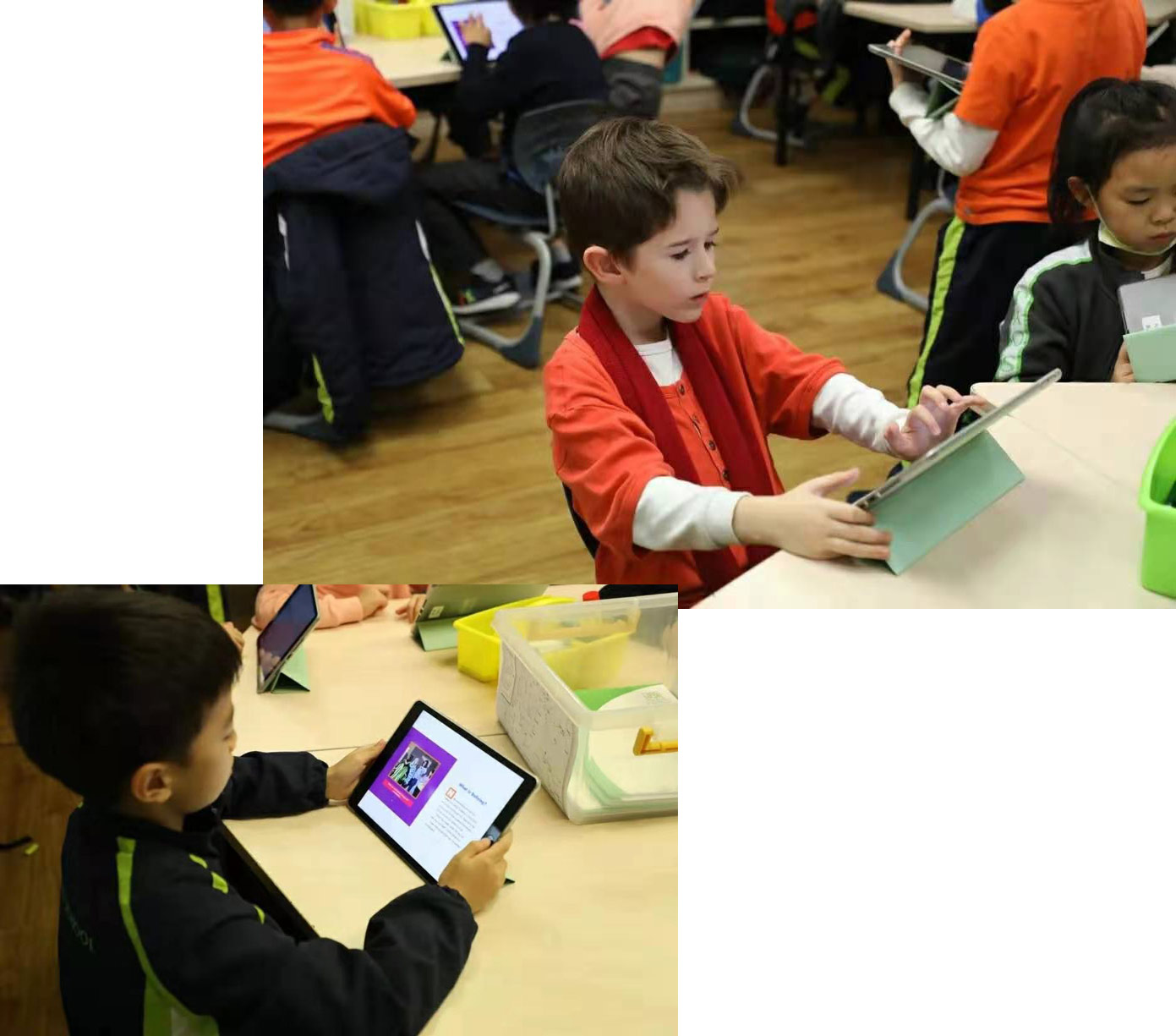
Y2 English Class
In the past, this type of sharing activity mostly involved making posters or small essays, with students giving their comments by adding sticky notes onto each-others work. "Especially for some of my Year 2s, who find writing very challenging, by having the tablets and having the ability to speak, to share a lot more of their thoughts, I think it’s going to be much more successful," Mr. Stanton explained. He also emphasised the usage of techonology in the classroom is limited to 10-15 minutes per class.
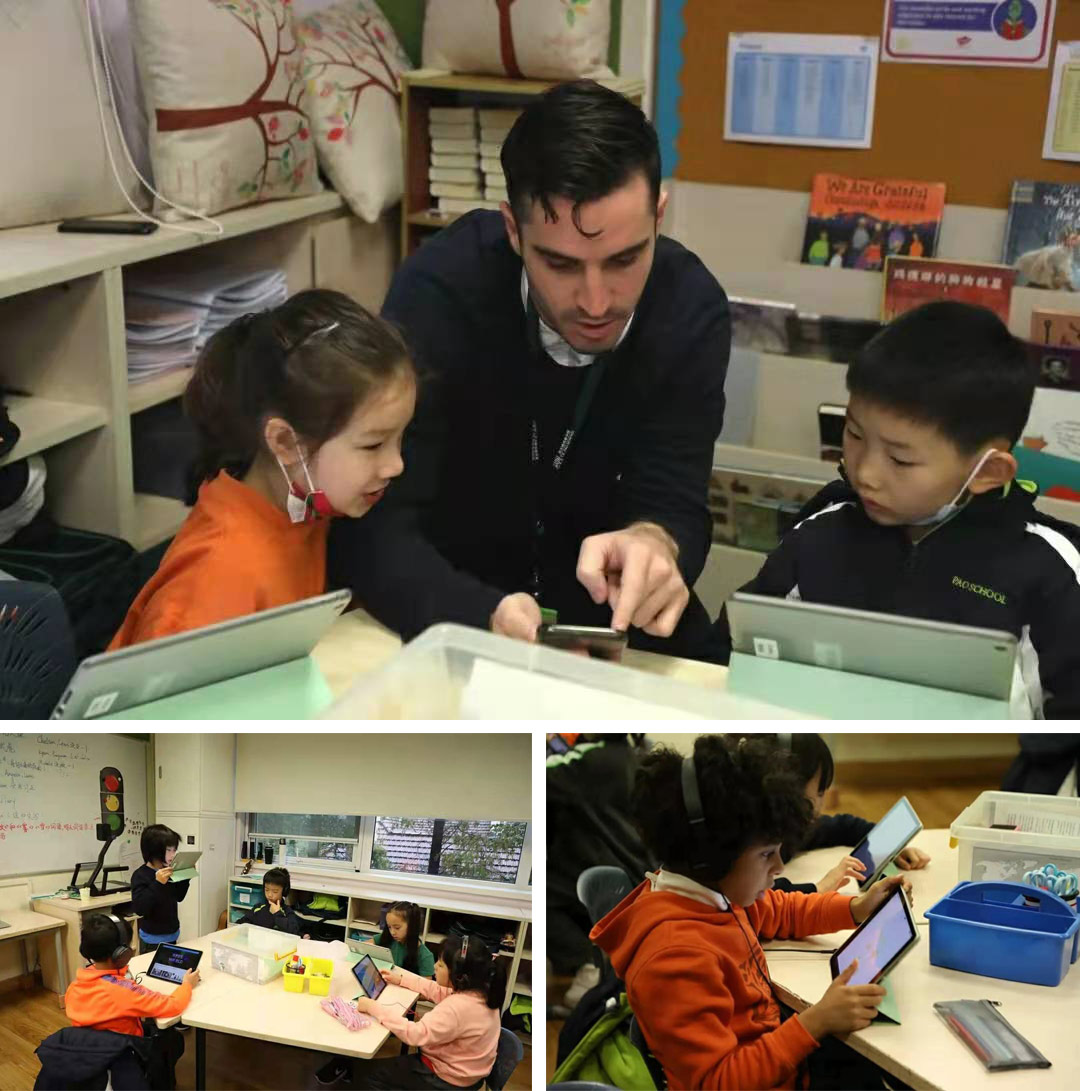
However, supported by technology such as tablets and computers, students can read online and take screenshots of their favourite story page. They are then able to record their thoughts and feelings through audio or text, with the power for other students to share their work with each other and give some feedback. As the students have their own individual accounts, they can keep track of their progress throughout the year, as the program allows for multimedia records, such as videos, voice recordings, and other digital materials. The online program also improves efficiency and can help parents understand their child’s work, as it can be seen on the platform in real time, alongside the teacher’s comments.
In addtion to use tablets and computers in the classroom, as an important part of the curriculum, students start taking information technology classes at the Primary School. As they learn about IT from an early age and use the skills as part of their day-to-day studies, students become proficient at using technology responsibly. They also learn essential 21st-century skills, such as coding and programming, effective research and referencing, typing, knowledge of different programs and applications, and to use devices such as tablets and computers.
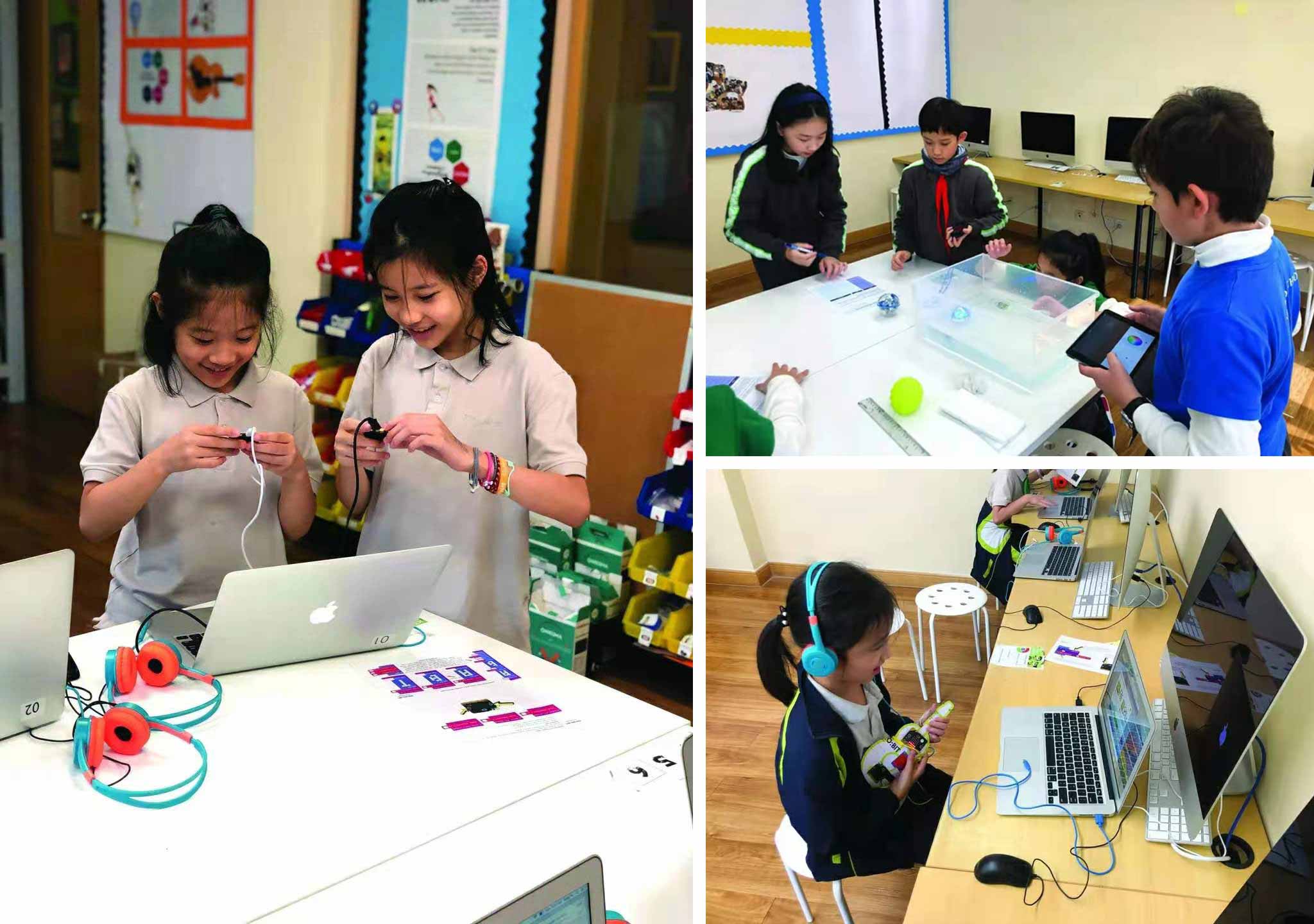
With the frequent usage of technology in the classroom, it has become one of the school’s top priorities to ensure that students use electronic devices correctly and responsibly, “Our students are young and need to be closely monitored and supervised when online; we firmly believe that school should be able to decide what is on the device so we can limit when students use them, what students they use them for and what they install on them.” Explains Ms. Allum.
In considering these goals and to lay down strong foundation for the students’ future studies, the Primary School developed a vision and strategy for technology. In order to implement the plan, the Primary School chose the well-recommended Apple Classroom application to manage the virtual learning environment, allowing the school to have full control of the devices and class. The school has also procured ample tablets and laptops, to ensure every child and teacher has easy access.
Ms. Allum explains, “We are mindful of the need for the devices to be used thoughtfully rather than gratuitously. However, there are some subject areas where it remains essential for students to continue to use pen and paper, as scientific research continues to affirm that writing by hand is an essential way our brains to transfer and cement new information. Ensuring we keep this important balance has also been central to our rollout of this project. We have also included systematic training for teachers to ensure their increased use of technology adds relevance to the lessons and also require them to ensure student use of tablets and computers is carefully managed and monitored.”
Making full use of the new software and technology, Year 5 students recently used an online platform to complete a personal biography writing task. Initially, under the guidance of the teachers, the students searched the internet to research about the type of characters they wanted to write about. They then began to create their characters in pairs, using the learning platform to share their content with each other and to provide peer feedback. Finally, after much review, they were able to submit and display their work.
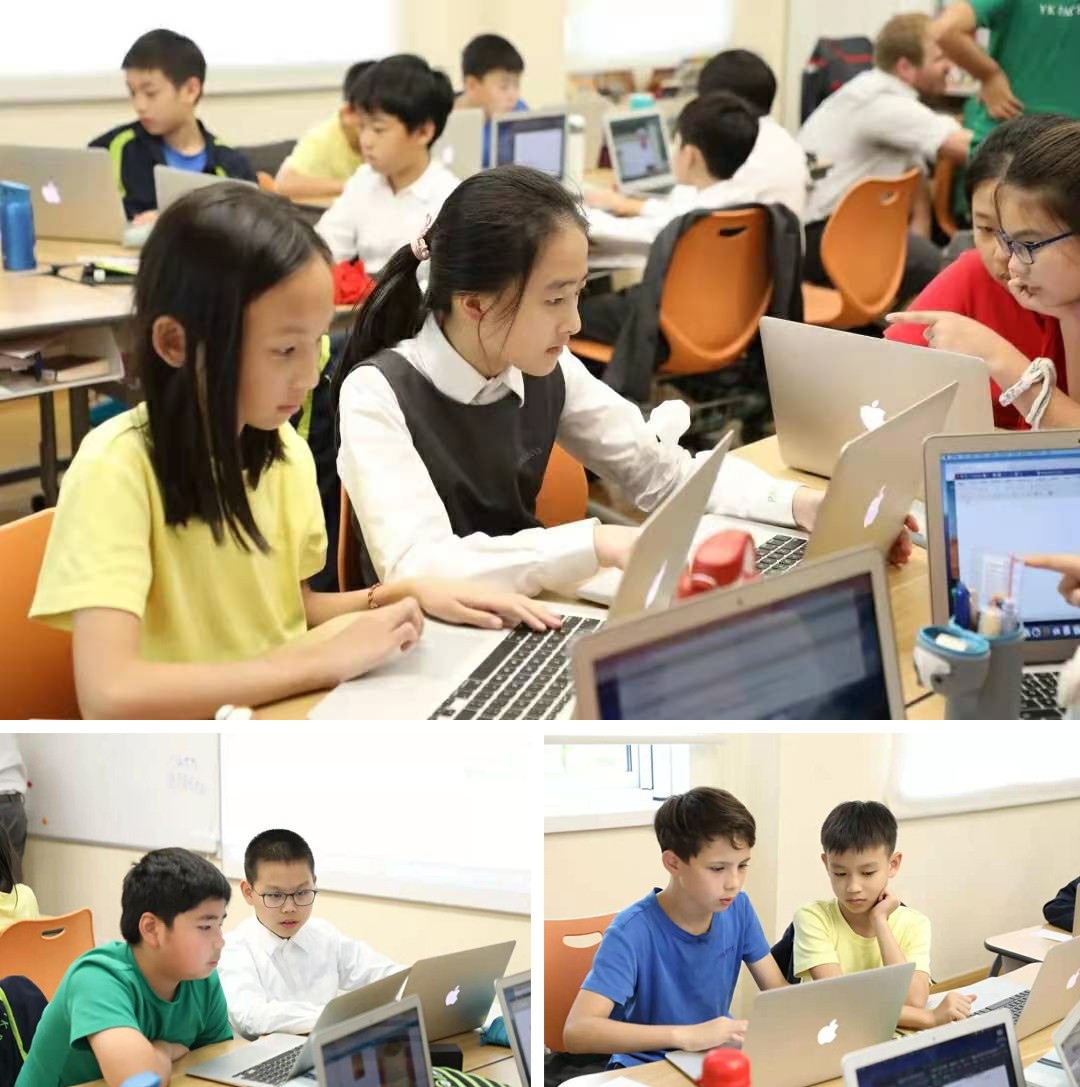
Y5 English Class
In the past, in order to provide each student with the required reading materials, teachers had to prepare dozens of books. However, this method was limiting, as each book could only be read by one person at a time and could only be exchanged after reading. The new system has shown significant benefits in this area, "Through the use of online learning platforms, students have more reading choices, can retrieve and complete tasks at their own pace – saving time and allowing for better differentiation." Duncan Brown, Year 5 English teacher.
He also explains how the system gives more freedom to the students, which can increase their enthusiasm. However, Mr. Brown add that, the student’s range of choice is controlled by the teachers, so there is structure in the classroom. He also explains that the application supports monitoring the students works, “When I am teaching one group of students, I can use the app to check what the other students are doing.”
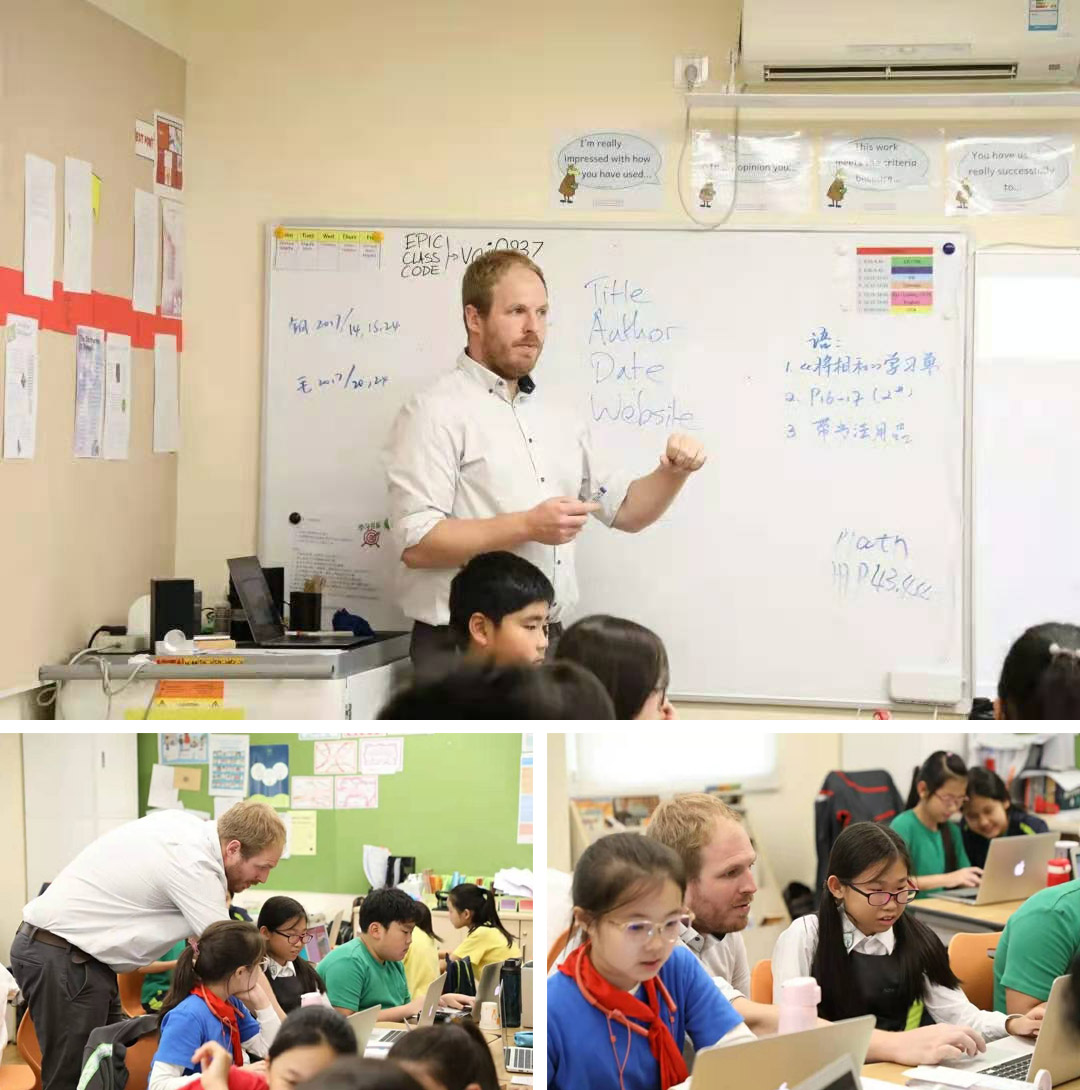
As reflected in Pao School’s day-to-day life, technology has become an increasingly important aspect of teaching and learning: both in its use as an essential and useful learning resource. The development of these skills is also necessary to guarantee that students obtain the technological knowledge needed to thrive in both work and life after graduation.
In particular, the success of the project is due to generosity of the YK Pao School Foundation, and the hard work and determination of Michael Bailey, Head of Upper Primary; Colin Chen, Director of IT; his hardworking IT team Xiaolong Weng and Ye Chen; and the support of EduTec Alliance. Over the coming three years, the school plans to continue improving teacher training, and to stay abreast of relevant education-related technological trends through our network of international schools, hoping to share information and advice and learn from each other.